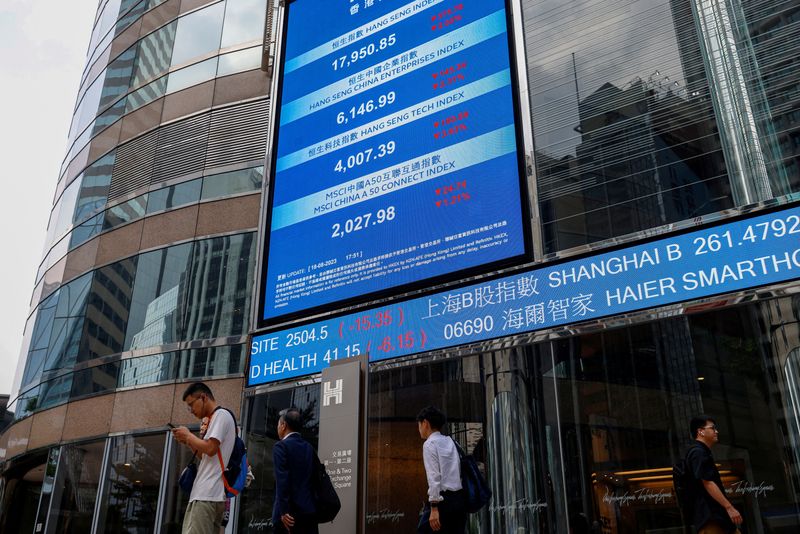By Samuel Shen and Kane Wu
SHANGHAI/HONG KONG (Reuters) - China's surprise move to slow the pace of mainland initial public offerings (IPOs) in an attempt to bolster the secondary market will cloud the fundraising plans of hundreds of companies and will weigh on the economy, bankers and lawyers said.
The regulatory decision was part of a package of measures unveiled by Beijing over the weekend to revive a lagging stock market and boost investor confidence in the world's second-largest economy, which is fast losing its growth momentum.
New share sales on the mainland had been one of the few bright spots in the Chinese financial sector this year, as geopolitical tensions and tightened regulatory curbs prompted domestic IPO-aspirants to choose home bourses over offshore stock exchanges.
There has been $39.7 billion worth of IPOs so far this year, Dealogic data showed, down from $68.2 billion at the same time last year, but more than double the $13.1-billion raised in the United States.
The decision to slow IPOs comes as bond markets are difficult and expensive to tap for Chinese private companies due to the spillover effect of a deepening property sector debt crisis.
This, coupled with diminishing appetite for China investments by private equity firms, will leave fewer avenues for companies to tap for growth capital and will weigh on their near-term business plans, bankers and analysts said.
"Slowing the pace of IPOs will have little impact on the equity markets but will further dampen access to capital for the private sector at a time when the economy sorely needs a boost," said Orient Capital Research Managing Director Andrew Collier.
The China Securities Regulatory Commission (CSRC) said on Sunday it would start a phased restriction on IPOs in a bid to promote "dynamic equilibrium" between investment and financing. It didn't say how long the curbs will last, and bankers expect tougher IPO vetting and a lengthier registration process.
More than 650 companies are waiting to list on the Shanghai and Shenzhen bourses, according to exchange data.
'CONTROLLING IPOs'
Companies in the pipeline for a market debut on the mainland include robot maker JAKA Robotics Co, semiconductor firm Shenzhen Chipsbank Technologies Co and Swiss agrichemicals and seeds group Syngenta, which is eyeing a $9 billion IPO this year.
Bankers said that the regulatory move to slow the pace of IPOs goes against Beijing's IPO reforms earlier this year, which sought to remove government intervention and introduce a U.S.-style registration-based IPO mechanism, among other things.
"It's going back to the old, myopic model of controlling IPOs to lift stock prices," said a Shanghai-based investment banker, who declined to be named as he is not authorised to talk to the media.
"It also shows China's registration-based IPO system is not genuine," he said.
Even before the latest decision, bankers and lawyers were already grappling with tougher-than-normal queries from stock exchanges over companies' fundraising plans and refinancing projects.
"I think many IPO candidates would give up their IPO plans," the banker said.
With China tightening scrutiny of companies eyeing offshore IPOs, Hong Kong grappling with a liquidity shortage, and Sino-US tensions clouding New York listing hopes, the latest move will leave Chinese firms with very few equity fundraising options.

"Fundraising via equity is a good thing, better for many companies as they can't raise debt so what purpose does this serve?" said Fraser Howie, author of several books on China's financial system.
"These tweaks address symptoms such as the weak stock market, but do nothing to sort the problem which is the economy."